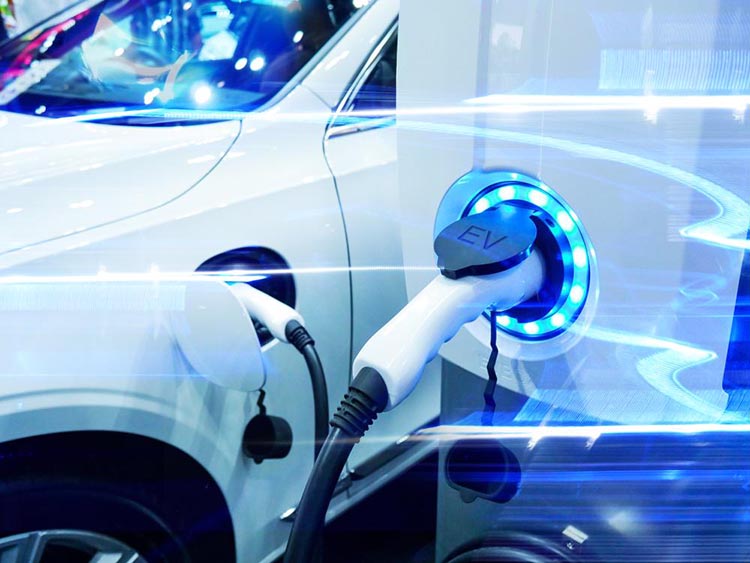
IMAGE: ISTOCK/PLARGUEDOCTOR
Drastically improved electric vehicle batteries possible with $2.9M grant
Mechanical engineering's Donghai Wang plans to tackle challenges related to the adoption of lithium-sulfur batteries, which could provide double the energy density and cycle life of current lithium-ion batteries
11/2/2021
By Erin Cassidy Hendrick
UNIVERSITY PARK, Pa. — In pursuit of commercially-adoptable electric vehicle batteries with twice the energy density and cycle life of current technology, Penn State researchers have been awarded $2.9 million from the U.S. Department of Energy.
Donghai Wang, professor of mechanical engineering and chemical engineering and affiliate of the Penn State Battery and Energy Storage Technology Center, Institutes of Energy and the Environment and the Materials Research Institute, has received funding for two projects to tackle challenges related to lithium-sulfur batteries.
This new class of batteries, which use sulfur in addition to lithium within their cores, have the potential to store double the energy of lithium-ion batteries at the same weight and are significantly less expensive to produce. However, the presence of sulfur and lithium also causes the battery cycling to become unstable.
“It’s a promising technology,” Wang said. “We want to push this to a level closer towards commercialization, but there are some issues that need to be addressed.”
The first project, allotted $1.2 million, will address polysulfide dissolution and migration. As the electricity flows into the sulfur cathode within the electrode, the material can rapidly break down into polysulfide and dissolve in the electrolyte, which is called polysulfide dissolution. Wang proposes the development of new sulfur composite materials without polysulfide dissolution and other functional materials, which would be applied to the electrode of the battery.
“We want to fundamentally change the chemistry of the Li-S battery cell to avoid this polysulfide dissolution,” he said. “We will develop this material by optimizing the composition and evaluating it in the battery cell.”
To achieve these goals, Wang will partner with Anh Ngo, associate professor of chemical engineering at the University of Illinois at Chicago.
The second project, with $1.6 million in funding, aims to develop a functional electrolyte to form protective interfaces on the sulfur cathode and the anode.
Currently, dendrites, or spiky structures that grow on the anode during charging, can form within the battery and affect the battery’s cycling stability. Wang likened the proposed electrolyte liquid to applying sunscreen to the battery’s anode and cathode.
“We will investigate how this electrolyte can form a stable interface and protect the battery,” he said.
For this project, Wang will collaborate with Ngo and Zhengcheng “John” Zhang, senior chemist/group leader at Argonne National Laboratory.
If successful, these methods can counteract the adverse reactions of the sulfur and allow the battery to operate with a long cycling life.
According to the Department of Energy, advancements like these could increase the use of electric vehicles and enable more affordable, better performing vehicles that would significantly reduce carbon dioxide emissions.
“Intrinsically, lithium-sulfur batteries promise a much higher energy density,” Wang said. “If we can address these issues of short life cycles through addressing polysulfide dissolution and dendrite formation, we can make them become accepted by consumers as a reliable power source of transportation.”



